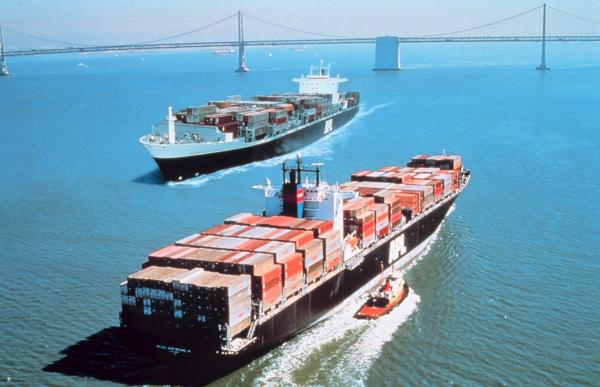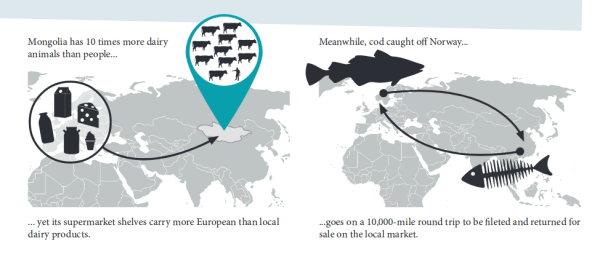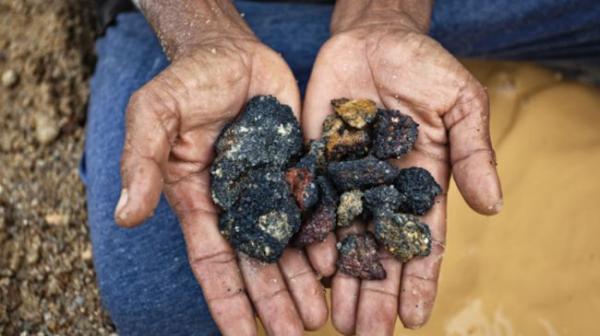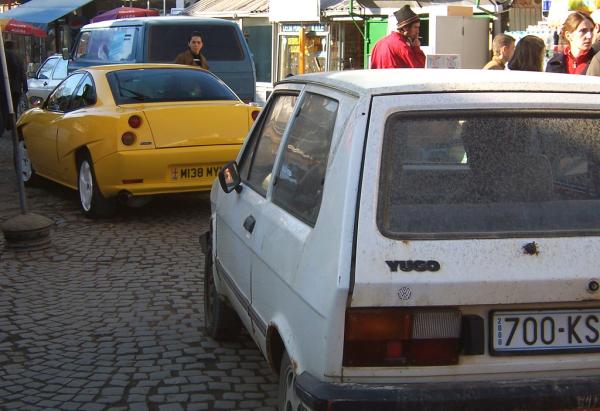To fix insane trade we must reform software too
You live in a world where Trade is so Insane that…

- more than half of the seafood caught in Alaska is processed in China, and then mostly shipped… right back to American grocery store shelves
- cod catched off the coast of Norway are sold in Scandinavian supermarkes, but only after they have been fileted in China
- Mexican cows live their whole life in Mexico eating corn imported from the USA, go to die in the USA United States, then their meat is shipped to Mexico
- China import more goods from itself than from the USA “in most years since 2005”
Re-importation. Re-importation everywhere
The official name of these and similar idiocies described here is “re-importation”: “countries shipping their own goods overseas only to ship them back again at a later stage in the production chain”.

Redundancy. Redundancy everywhere
Equally, or even more insane is the other common practice of redundant trade: countries both importing and exporting huge quantities of identical products in a given year. Like the US, that “both imported and exported nearly 1.5 million tons of beef, and nearly half a million tons of potatoes” in 2017.
Not just food

Rare earths, often coming too soon from slave labor FAR from you
</em></u>
The components of a typical smartphone travel a collective half-million miles before someone buys it. And the most critical ones are very hard to recycle, and soon hard to find too.
Why? Money, of course
Marco Polo and his fellow merchants of “darker” ages would laugh themselves to death at seeing this being called “progress”. Even ignoring pollution, the socioeconomic consequences of Insane Trade are too bad to ignore:
- small farmers are priced out of existence by food and clothes that are often worst but cheaper, in spite of coming from halfway across the planet
- moving food and everything else around the same planet keeps countries addicted to fossil fuels, that is to geopolitical instability
- the plastic used to package stuff so it can travel thousands of kilometers ends up inside ourselves
This embarrasingly idiot circus keeps running because it is extremely profitable for the same organizations that keep telling everybody else to “be more productive”. In practice (1), it stays profitable through:
- free trade agreements, that allow multinational corporations to combine the cheapest raw materials and worker wages with the most “business-friendly” labor and environmental regulations, wherever they are, in whatever order increases stock dividends
- custom-made tax loopholes
- direct and indirect subsidies for fossil fuels, paid by taxpayers of course
The solutions, and their limits
A recent, popular article about Insane Trade concludes that:
- reducing global carbon emissions and social unrest WHILE expanding global trade is impossible
- emissions from global trade do not appear in any nation’s carbon accounting, even if fixing the accounting would be relatively simple
- [regardless of accounting] a critical step would be the removal of subsidies for fossil fuels
Personally, I have two worries about the proposals in that article: one is that they, even if new rules were established, they may be too complex to apply in practice. Pacifically, at least. Direct rationing of fossil fuels would probably lead to global war, quicker than most other actions I can think about. Rationing everything else may be almost equally effective, and [relatively speaking!] much simpler to implement. Even the removal of subsidies may be much harder to do than adding “green taxes” (as unfair are they are) on fossil fuels, like e.g making gas cost 5 Euros per liter all across the European Union (yes, I am perfectly aware that that is a mad idea. So are the times).
Subsidies, and the nature of software
My other worry is that certain proposals may be insufficient, or much less efficient than other ones. There are “hidden subsidies” that are just as harmful as those for fossil fuels, but have nothing to do with trade as such, or at least with movement of physical objects.
This is true, and the main problem, at least for certain classes of products, which also happen to be the ones that should boom in the next few years: digital electronics. And I am not talking here of “intellectual property” excesses, albeit that too is a huge problem.
Smartphones, as well the tens of billions of IoT devices that should fill the planet in the next few years, would pollute way too much even if they were made next door, using exclusively raw materials and renewable energy coming from less than 50 kilometers. Because smartphone users are forced to buy new phones too often, thanks to software-driven programmed-obsolescence.

Two cars in Pristina, Kosovo, showing how software can be worst than Insane Trade. See (2) for details
</em></u>
A smartphone could and should last TEN YEARS
And that would immensely reduce the related “insane trade”. The main reason why this does not happen today is apps that, for no real reason, force users to upgrade the operating system, which in turn requires, again for no real reason, a more powerful phone. Thanks to lack of regulations, the nature of software (2) forces everybody to run into this threadmill. Even when there are no subsidies involved. That’s why I say that, if you want to end Insane Trade, with all the exploitation it involves, you can’t just rely on removing subsidies.
- See this factsheet for more
- See slide 16 and following of this talk of mine
Who writes this, why, and how to help
I am Marco Fioretti, tech writer and aspiring polymath doing human-digital research and popularization.
I do it because YOUR civil rights and the quality of YOUR life depend every year more on how software is used AROUND you.
To this end, I have already shared more than a million words on this blog, without any paywall or user tracking, and am sharing the next million through a newsletter, also without any paywall.
The more direct support I get, the more I can continue to inform for free parents, teachers, decision makers, and everybody else who should know more stuff like this. You can support me with paid subscriptions to my newsletter, donations via PayPal (mfioretti@nexaima.net) or LiberaPay, or in any of the other ways listed here.THANKS for your support!